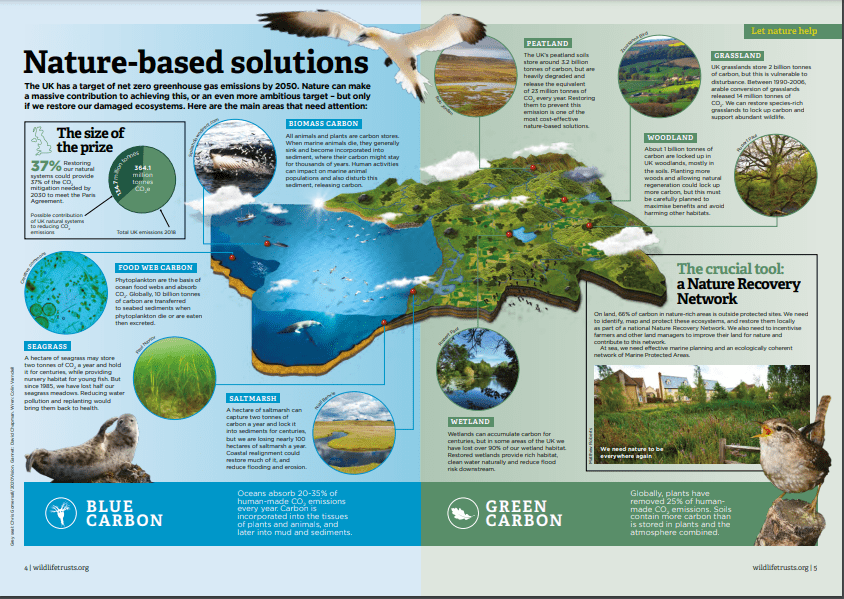Tomorrow sees the start of the COP26 event in Glasgow – and David Attenborough will be there making the case for nature:
“It’s not too late to win the fight against the climate and nature crises. Given the chance, nature can recover in the most remarkable ways.” Sir David Attenborough joins us in highlighting the role of nature in tackling climate change #COP26
Sir David Attenborough says Let Nature Help Fight Climate Change – YouTube
This is part of the push by the Wildlife Trusts:
Combatting the Climate and Nature Emergency | The Wildlife Trusts
With a specific call made in a report submitted earlier this month:
The Wildlife Trusts’ COP26 report says it’s time to tackle the twin crises at speed
Devon Wildlife Trust says ‘Now is the time for bold action…so that nature and climate feed into everything we do’
The Wildlife Trusts are calling on the UK Presidency of the global climate conference COP26 to tackle the nature crisis alongside the climate emergency – or neither will be solved. The charity has published a COP26 edition of its nature-based solutions report, Let Nature Help. It explains how climate change is driving nature’s decline, whilst the loss of wildlife and habitats leaves us ill-equipped to reduce emissions and adapt to a changing world.
Here’s that report:
Let nature help: How nature’s recovery is essential for tackling the climate crisis
The time is now: To deal with the climate crisis, we must bring nature back on an ambitious scale
The world is starting to take note of the threat of climate catastrophe. In response, the UK government has joined many governments around the world in setting a net zero emissions target in law. Yet we cannot tackle the climate crisis without similar ambition to meet the nature crisis head on – the two are inseparable. The climate crisis is driving nature’s decline; the loss of wildlife and habitats leaves us ill-equipped to reduce our emissions and adapt to change.
Nature’s incredible ability to trap carbon safely and provide other important benefits is proven. But nature in the UK is in a sorry state and important habitats are damaged and declining.
Rapid cuts in our emissions must be matched with determined action to fix our broken ecosystems, so they can help stabilise our climate. We must bring nature back across at least 30% of land and sea by 2030. Restoring wild places will also revive the natural richness we all depend upon, making our lives happier and healthier.
The Wildlife Trusts have a big part to play in delivering this recovery. We are already stepping up to the challenge, but we also need decision makers, communities, businesses and everyone else to come along with us.

We must act now and we must get this right. According to the Intergovernmental Panel on Climate Change (IPCC), decisions we take in the next 10 years are crucial for avoiding total climate catastrophe. We must kickstart nature’s recovery and make nature-based solutions a priority.
Craig Bennett CEO, The Wildlife Trust
As highlighted by the Sid Valley Biodiversity Group:
What will be said and done at COP26 in Glasgow? | Sidmouth Herald
Climate change and biodiversity: nature-based solutions for Devon – Vision Group for Sidmouth
And pretty much everyone else:
U.N. biodiversity chief urges COP26 climate talks to prioritise nature | Reuters
To sustain humanity COP26 must lead on both climate and biodiversity | TheHill
Analysis warns global biodiversity is below ‘safe limit’ ahead of COP 15 | Natural History Museum
Meadows could be our secret weapon in the fight against climate change | New Scientist
Climate solutions from peatlands to parasites | The Scottish Farmer